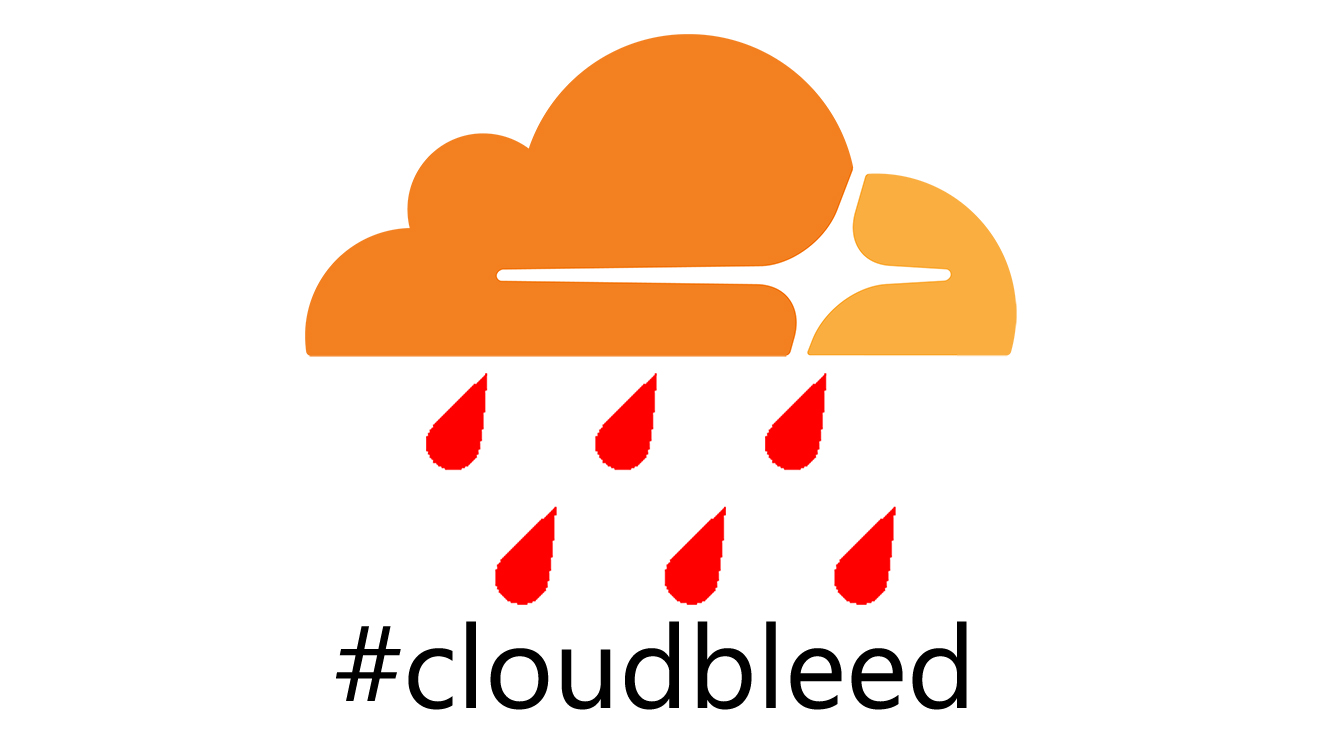Cloudflare bug leaks personal info from 120,000 sites
Hackers are not exploiting 'Cloudbleed' flaw, says CTO


Cloudflare has been leaking personal information, passwords and software keys from over 120,000 sites and services onto the internet, the company has revealed.
The leak was due to a bug in the systems of the company, which offers anti-DDoS and CDN services for around six million websites, and affected companies such as Uber, OKCupid, Fitbit and more.
Discovered by Google security researcher Tavis Ormandy, the bug - which has already been dubbed 'Cloudbleed' after the Heartbleed openSSL vulnerability discovered in 2014 - is apparently a buffer overflow issue and has been blamed on malformed HTML code.
"In some unusual circumstances," Cloudflare CTO John Graham-Cumming wrote in a blog post detailing the issue, "our edge servers were running past the end of a buffer and returning memory that contained private information such as HTTP cookies, authentication tokens, HTTP POST bodies, and other sensitive data. And some of that data had been cached by search engines."
In layman's terms, this meant that users visiting Cloudflare-hosted sites could wind up with data from other sites embedded in their browser. So, someone visiting the Fitbit site could end up accidentally gathering data from another person's OKCupid activity.
The leak was most active from 13 February to 18 February, Graham-Cumming said, affecting around 120,000 sites per day. It may also have been active since 22 September 2016.
Graham-Cumming has said that the issue is now fixed and cached data largely removed from search engines such as Google, adding that he does not believe that the leaked information has been exploited by hackers.
Get the ITPro daily newsletter
Sign up today and you will receive a free copy of our Future Focus 2025 report - the leading guidance on AI, cybersecurity and other IT challenges as per 700+ senior executives
Ormandy kept a running log of the incident, from initial discovery all the way to resolution and public disclosure, including examples of some of the data that was being exposed by the issue.
"We fetched a few live samples, and we observed encryption keys, cookies, passwords, chunks of POST data and even HTTPS requests for other major cloudflare-hosted sites from other users," he wrote. "We've discovered (and purged) cached pages that contain private messages from well-known services, PII from major sites that use Cloudflare, and even plaintext API requests from a popular password manager that were sent over https (!!)."
"The examples we're finding are so bad, I cancelled some weekend plans to go into the office on Sunday to help build some tools to cleanup. I've informed Cloudflare what I'm working on. I'm finding private messages from major dating sites, full messages from a well-known chat service, online password manager data, frames from adult video sites, hotel bookings. We're talking full https requests, client IP addresses, full responses, cookies, passwords, keys, data, everything."
While Cloudflare says it's confident that the information is not being exploited, some security experts are warning that accounts hosted on any site that uses Cloudflare could be compromised, and that users may want to change their account details and passwords.
Image credit: Tavis Ormandy
Adam Shepherd has been a technology journalist since 2015, covering everything from cloud storage and security, to smartphones and servers. Over the course of his career, he’s seen the spread of 5G, the growing ubiquity of wireless devices, and the start of the connected revolution. He’s also been to more trade shows and technology conferences than he cares to count.
Adam is an avid follower of the latest hardware innovations, and he is never happier than when tinkering with complex network configurations, or exploring a new Linux distro. He was also previously a co-host on the ITPro Podcast, where he was often found ranting about his love of strange gadgets, his disdain for Windows Mobile, and everything in between.
You can find Adam tweeting about enterprise technology (or more often bad jokes) @AdamShepherUK.
-
 AI is helping bad bots take over the internet
AI is helping bad bots take over the internetNews Automated bot traffic has surpassed human activity for the first time in a decade, according to Imperva
By Bobby Hellard
-
 Two years on from its Series B round, Hack the Box is targeting further growth
Two years on from its Series B round, Hack the Box is targeting further growthNews Hack the Box has grown significantly in the last two years, and it shows no signs of slowing down
By Ross Kelly
-
 Capita tells pension provider to 'assume' nearly 500,000 customers' data stolen
Capita tells pension provider to 'assume' nearly 500,000 customers' data stolenCapita told the pension provider to “work on the assumption” that data had been stolen
By Ross Kelly
-
 Gumtree site code made personal data of users and sellers publicly accessible
Gumtree site code made personal data of users and sellers publicly accessibleNews Anyone could scan the website's HTML code to reveal personal information belonging to users of the popular second-hand classified adverts website
By Connor Jones
-
 Pizza chain exposed 100,000 employees' Social Security numbers
Pizza chain exposed 100,000 employees' Social Security numbersNews Former and current staff at California Pizza Kitchen potentially burned by hackers
By Danny Bradbury
-
 83% of critical infrastructure companies have experienced breaches in the last three years
83% of critical infrastructure companies have experienced breaches in the last three yearsNews Survey finds security practices are weak if not non-existent in critical firms
By Rene Millman
-
 Identity Automation launches credential breach monitoring service
Identity Automation launches credential breach monitoring serviceNews New monitoring solution adds to the firm’s flagship RapidIdentity platform
By Praharsha Anand
-
 Neiman Marcus data breach hits 4.6 million customers
Neiman Marcus data breach hits 4.6 million customersNews The breach took place last year, but details have only now come to light
By Rene Millman
-
 Indiana notifies 750,000 after COVID-19 tracing data accessed
Indiana notifies 750,000 after COVID-19 tracing data accessedNews The state is following up to ensure no information was transferred to bad actors
By Rene Millman
-
 Pearson fined $1 million for downplaying severity of 2018 breach
Pearson fined $1 million for downplaying severity of 2018 breachNews The SEC found the London-based firm made “misleading statements and omissions” about the intrusion
By Rene Millman